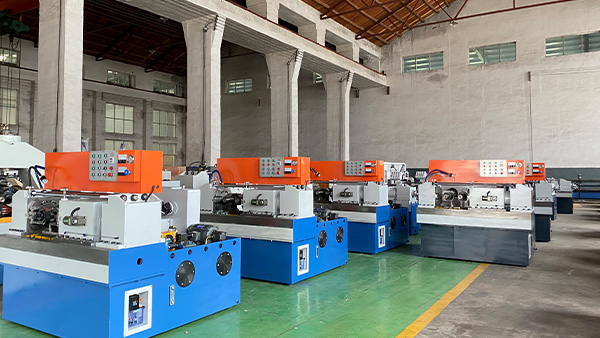
-
 Afrikaans
Afrikaans -
 Albanian
Albanian -
 Amharic
Amharic -
 Arabic
Arabic -
 Armenian
Armenian -
 Azerbaijani
Azerbaijani -
 Basque
Basque -
 Belarusian
Belarusian -
 Bengali
Bengali -
 Bosnian
Bosnian -
 Bulgarian
Bulgarian -
 Catalan
Catalan -
 Cebuano
Cebuano -
 Corsican
Corsican -
 Croatian
Croatian -
 Czech
Czech -
 Danish
Danish -
 Dutch
Dutch -
 English
English -
 Esperanto
Esperanto -
 Estonian
Estonian -
 Finnish
Finnish -
 French
French -
 Frisian
Frisian -
 Galician
Galician -
 Georgian
Georgian -
 German
German -
 Greek
Greek -
 Gujarati
Gujarati -
 Haitian Creole
Haitian Creole -
 hausa
hausa -
 hawaiian
hawaiian -
 Hebrew
Hebrew -
 Hindi
Hindi -
 Miao
Miao -
 Hungarian
Hungarian -
 Icelandic
Icelandic -
 igbo
igbo -
 Indonesian
Indonesian -
 irish
irish -
 Italian
Italian -
 Japanese
Japanese -
 Javanese
Javanese -
 Kannada
Kannada -
 kazakh
kazakh -
 Khmer
Khmer -
 Rwandese
Rwandese -
 Korean
Korean -
 Kurdish
Kurdish -
 Kyrgyz
Kyrgyz -
 Lao
Lao -
 Latin
Latin -
 Latvian
Latvian -
 Lithuanian
Lithuanian -
 Luxembourgish
Luxembourgish -
 Macedonian
Macedonian -
 Malgashi
Malgashi -
 Malay
Malay -
 Malayalam
Malayalam -
 Maltese
Maltese -
 Maori
Maori -
 Marathi
Marathi -
 Mongolian
Mongolian -
 Myanmar
Myanmar -
 Nepali
Nepali -
 Norwegian
Norwegian -
 Norwegian
Norwegian -
 Occitan
Occitan -
 Pashto
Pashto -
 Persian
Persian -
 Polish
Polish -
 Portuguese
Portuguese -
 Punjabi
Punjabi -
 Romanian
Romanian -
 Russian
Russian -
 Samoan
Samoan -
 Scottish Gaelic
Scottish Gaelic -
 Serbian
Serbian -
 Sesotho
Sesotho -
 Shona
Shona -
 Sindhi
Sindhi -
 Sinhala
Sinhala -
 Slovak
Slovak -
 Slovenian
Slovenian -
 Somali
Somali -
 Spanish
Spanish -
 Sundanese
Sundanese -
 Swahili
Swahili -
 Swedish
Swedish -
 Tagalog
Tagalog -
 Tajik
Tajik -
 Tamil
Tamil -
 Tatar
Tatar -
 Telugu
Telugu -
 Thai
Thai -
 Turkish
Turkish -
 Turkmen
Turkmen -
 Ukrainian
Ukrainian -
 Urdu
Urdu -
 Uighur
Uighur -
 Uzbek
Uzbek -
 Vietnamese
Vietnamese -
 Welsh
Welsh -
 Bantu
Bantu -
 Yiddish
Yiddish -
 Yoruba
Yoruba -
 Zulu
Zulu
Cost-effective small thread rolling machines for efficient manufacturing and precision threading solutions
Exploring Small Thread Rolling Machines An Essential Tool for Precision Manufacturing
In the world of precision manufacturing, small thread rolling machines have become indispensable. These machines are specifically designed to create high-quality threads on various materials, which are essential for producing fasteners and other critical components in multiple industries including automotive, aerospace, electronics, and construction.
Understanding the Thread Rolling Process
Thread rolling is a cold-forming process that reshapes a material into a specific thread profile using a series of hardened dies. This method offers several advantages over conventional cutting techniques, such as improved material strength, better surface finish, and enhanced dimensional accuracy. Small thread rolling machines, in particular, are ideal for producing small-sized threads, which are commonly required in precision engineering applications.
Benefits of Small Thread Rolling Machines
1. Cost Efficiency One of the most significant advantages of using small thread rolling machines is their cost-effectiveness. These machines allow manufacturers to produce threads rapidly, reducing the time and labor required for production. In addition, the cold-forming nature of the process results in minimal waste, lowering material costs.
2. High Precision and Consistency Small thread rolling machines are engineered to deliver precise dimensions and consistent quality across large production runs. The ability to maintain tight tolerances ensures that every piece produced meets the required specifications, which is critical in industries where safety and reliability are paramount.
3. Enhanced Material Properties The thread rolling process not only shapes the material but also improves its mechanical properties. The cold working of the material during rolling aligns its grain structure, resulting in increased tensile strength and fatigue resistance. This makes products more durable and capable of withstanding harsh conditions.
4. Versatility Small thread rolling machines can work with various materials, including steels and alloys, as well as softer metals like aluminum and brass. This versatility makes them suitable for different applications, from fasteners used in electronics to components in heavy machinery.
small thread rolling machine quotes

Choosing the Right Small Thread Rolling Machine
When selecting a small thread rolling machine, manufacturers should consider several factors
- Machine Specifications It's essential to evaluate the machine’s capabilities, such as the size of the threads it can produce, the materials it can handle, and its production speed.
- Automation Features Many modern machines come equipped with advanced automation features that enhance efficiency, such as programmable settings for different thread profiles and automatic feeding systems.
- Maintenance and Support Consider the availability of technical support and the ease of maintenance. A machine that is simple to maintain will reduce downtime and improve overall productivity.
- Budget Constraints Lastly, the budget will play a significant role in the decision-making process. While it may be tempting to go for the lowest-priced option, investing in a high-quality machine with a good reputation can lead to better long-term results.
Conclusion
Small thread rolling machines represent a crucial element in modern manufacturing, providing efficiency, precision, and durability. As industries continue to evolve, the demand for high-quality fasteners and components will only increase, making these machines ever more important. Investing in the right small thread rolling machine is not just a matter of acquiring new equipment; it’s about ensuring that a manufacturing operation remains competitive and capable of meeting the stringent demands of the market. By understanding the benefits, features, and considerations involved in selecting a small thread rolling machine, manufacturers can optimize their production processes and achieve superior product quality.
